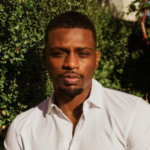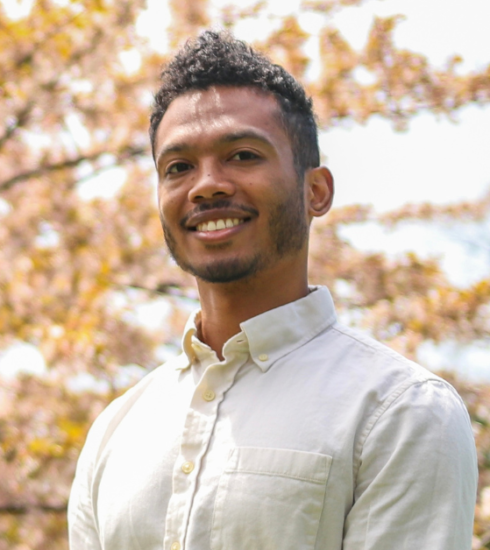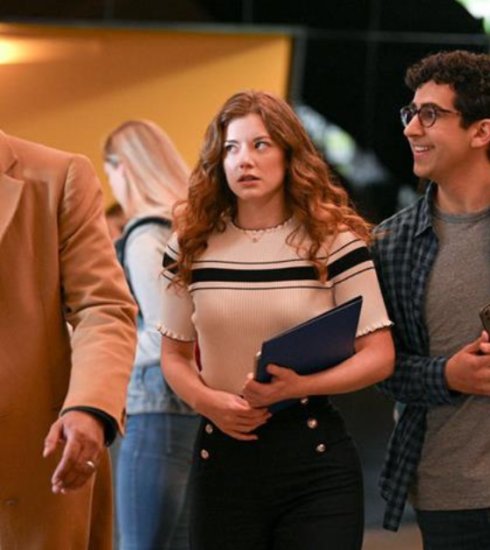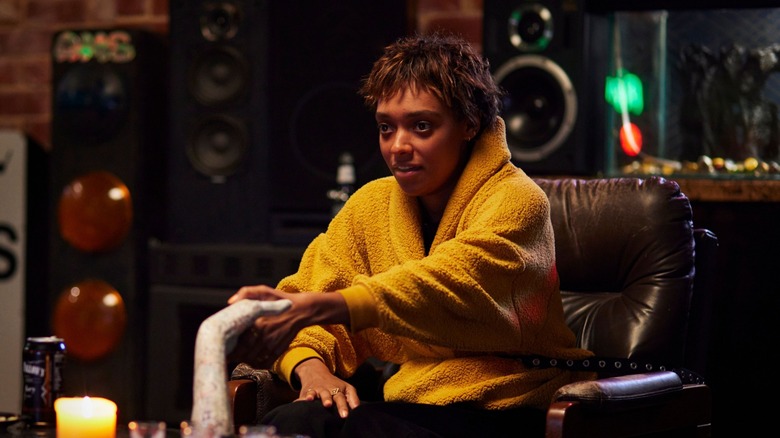Tayo Amos, a Nigerian-American director, discusses her experience directing a recent episode of Chicago Fire
Tayo Amos is a rising talent in Hollywood who made her directing debut on NBC’s Chicago Fire, her first TV series. Although she has directed short films and miniseries in the past, this may be her first television series. Tayo and I met together to talk about her experience directing a project of this size, her participation in NBC’s Female Forward directing program, and the effect her family and culture have had on her work.

Cox: I’m eager to talk with you about directing Chicago Fire’s historic Female Forward directing program this week’s episode (“Danger is All Around”) and getting to know you better as a director. I’d like to know how you would identify yourself as a filmmaker before we start the podcast.
Amos: As a director, I would say that I am drawn to characters that are in difficult situations, especially women of color. I can relate to this because I was raised in a predominantly white environment as a Nigerian-American. You realize how unsuitable these environments are for you when you grow up in them. As a result, I use that lens to examine characters who find themselves in circumstances and settings that aren’t necessarily intended for them.
If we’re talking about genres, I’d have to say that I favor drama, thrillers, and action. However, I’m open to many genres as a filmmaker. Since Chicago Fire crosses all those genres in some way, getting the chance to direct this episode has made me more aware of the more communal side of directing.

As a filmmaker, I believe I can claim that I’m always evolving.
Cox: I’m starting to direct this episode right now. How did you ensure that everything was vividly shown for the viewers from beginning to end?
Amos: The examination of the script is what I do initially. I consider these characters who go through a variety of experiences, such as individuals entering and leaving their life and unforeseen, unforeseen circumstances. I wanted these characters to experience situations where they appeared to be standing on firm footing until something unanticipated upset their sense of security. It was intended to elicit strong feelings.
I really delved into the story’s visual language since the show fits my creative approach. Additionally, I wanted to consider how I could examine the scenes’ emotional beats from a broad perspective.
I was in charge of the technical aspects of production, such as my overheads, shot list, and storyboards, which were separate from the creative process.
Cox: What is anything you have discovered about yourself while directing?
Amos: That’s an excellent question. I wasn’t aware of how my independent trips to Morocco, Istanbul, and various areas of Europe had shaped me as a filmmaker. As a solo traveler, I often found myself in unfamiliar environments where I had to find out how things worked. That was helpful because there were times on set when I wasn’t really sure what we were doing, but I was still able to keep my feet on the ground, push myself outside of my comfort zone, and pull it off.
Cox: As a result of NBCU’s Female Forward directing curriculum, you were allowed to direct this. Before we discuss that, I’d like to hear what guidance you would offer to another woman of color who was considering assuming a similar position.

Amos: I would advise facing your fear head-on since doing so demonstrates your commitment to the task at hand and the entire process. Keep in mind that nobody on the set is aware of what is going on below, so maintain your game face. So, have faith in yourself. Although such sensations of uncertainty are normal since they pass quickly, having a confident demeanor can help you push them away.
Cox: What do you think and have you experienced with the Female Forward directing program at NBCU?
Amos: I adore it because it cultivates a community in addition to providing opportunity for aspiring filmmakers. It really strengthens our bonds. I got the incredible chance to chat with several participants—both past and present—who have since completed some remarkable projects.
The industry’s status quo is being challenged by this program in earnest. It simply seems so motivating to me. One of the main lessons I learned was that.
Cox: Do you have any upcoming projects?
Amos: I’m now working on my debut motion picture, which will star Demi Singleton, who portrayed a young Serena Williams in the King Ricard motion picture. The film’s concept is that a high school kid joins a cheating ring to get into Harvard.
This is a passion project of mine, and it was inspired by my personal experiences attending a high school with a predominately white student body. I had pressure as a Nigerian-American to ensure my admission to a prestigious university. The prospect of everything coming together excites me.

Oh, and NBC and Will Packer productions have a blind script agreement with me as well. I can’t wait to get that going.
Cox: It was a pleasure speaking with you, Tayo. Before you leave, I’d like to know how your background as an American-Nigerian has affected you and the way you make movies.
Amos: The largest factor is how deeply established our culture of storytelling is. Singing and storytelling are fundamental to African culture in general. And since everything in Nigerian culture is about excellence, I made sure to put in my best effort and work my hardest.
I attended church often when I was a child, but I wasn’t aware until I was older how much it even affected my storytelling skills. You read and study information about every Biblical figure in church. Unaware of it, this was perhaps my first experience with narrative.






